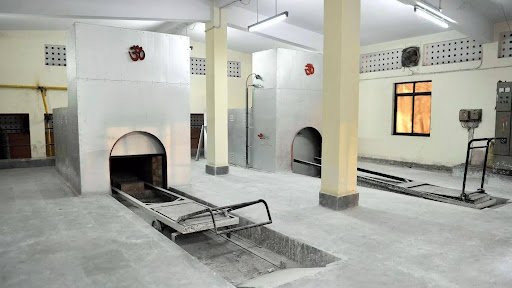With its inhabitants at the centre of its economic engine, the United Arab Emirates is pursuing a purposeful and revolutionary national goal. This is a calculated step to future-proof the country’s economy by moving away from a resource-dependent model and towards one that is powered by local talent and expertise, not simply a political mandate. The objective is unmistakable: to guarantee that Emiratis are the main creators and leaders of the country’s prosperity, not merely contributors. Emiratization is a nationwide initiative that is heavily investing in certain industries. These sectors are not arbitrary; rather, they are those that are seen to be crucial to the UAE’s sustained competitive advantage in the world market. In actuality, this means that the government is giving its citizens high-value, long-lasting career prospects by encouraging private sector businesses—even smaller ones—to give Emirati recruiting, training, and leadership development first priority. These industries provide the most obvious chances for both personal and national advancement for an Emirati looking for a profession that will have the most effect and are the most stable. Let’s examine the key areas that are shaping the careers of the future generation of government Emiratisation jobs UAE.
Key Sectors Driving Emirati Career Excellence in the UAE
1.Insurance and Finance
The UAE’s economy has traditionally relied heavily on the financial industry, but the truth is that its importance is only growing. Being a major international financial centre, the nation needs a robust, domestically based workforce to handle large capital flows, investment banking, and the intricate world of risk management and insurance. This industry naturally attracts talented nationalities since it demands a high level of trust and institutional expertise. Here, professional professions like compliance officers, financial analysts, risk managers, and investment advisers are given precedence above teller positions alone. In order to match national talent with the future of digital banking and economic security, efforts are being made to draw Emiratis to FinTech. With training programs and incentives created especially to place Emirati professionals and graduates in high-level roles across the whole financial institution ecosystem, government assistance is centred here.
2.Technology of Information and Communications (ICT)
In a world where connection and data is king, the ICT industry is the epitome of the UAE’s knowledge economy agenda. Cloud computing, cybersecurity, artificial intelligence, and digital transformation are major components of the country’s strategic objectives. A local skill pool capable of both implementation and innovation is thus required. Careers like software engineers, data scientists, cybersecurity analysts, and artificial intelligence professionals are in great demand among Emiratis. The government views local knowledge in these areas as essential to both economic sovereignty and national security. For this reason, platforms for education and training are substantially subsidised and tailored to provide Emiratis with the competitive capabilities they need to spearhead the digital revolution and safeguard the nation’s extensive digital infrastructure.
3.Social Work and Healthcare
The UAE Government has given top priority to the health and well-being of its people. The long-term goal requires a significant increase in Emirati physicians, along with technicians and health care administrators, even though international expertise is still needed. In a field that is expanding rapidly as a result of new facilities and medical tourism efforts, this drive guarantees cultural sensitivity and long-term stability. There are many different work options, from managerial jobs in hospital administration and public health policy to clinical responsibilities like specialised medicine and nursing. In order to better assist families and community welfare programs with a thorough awareness of local context and culture, social work, which is closely related to this sector, also places a lot of focus on Emiratization.
4.Education
The UAE is dedicated to having its citizens mould the future generation in both public and private institutions because it needs top-notch educators to create a world-class workforce. One of the main pillars of Emiratization is the education sector, which aims to increase the proportion of Emirati educators, principals, and legislators. In order to guarantee that local educators are at the forefront of all important subject areas, this initiative goes beyond Arabic and Islamic studies to include science, maths, and technology. The government guarantees that national values, cultural identity, and future strategic demands are intimately integrated into the curriculum and institutional leadership by appointing Emiratis to oversee educational institutions.
5.Advanced Industry and Manufacturing
The goal of the “Operation 300 Billion” plan is to greatly increase the industrial sector’s share of the GDP. This is about smart factories, innovative manufacturing, and future industries, not about old heavy industry. This indicates that positions in the manufacturing of innovative materials, aerospace, medicines, and renewable energy equipment are being sought after by Emiratis. Technical proficiency and engineering knowledge are required for these roles. In order to make Emiratis indispensable to the manufacture of high-value items in the United Arab Emirates, the government is establishing clear routes for them to pursue careers as mechanical, electrical, and systems engineers, as well as experts in industrial robots and quality control.
6.Support Services and Strategic Administration
The fundamental, high-level corporate operations that guarantee businesses operate smoothly, effectively, and legally fall under this category. The need for Emiratis in corporate administrative and human resources positions has increased dramatically as a result of the increased emphasis on Emiratization quotas. The important thing is that an Emirati member of the team often contributes a natural grasp of national talent acquisition tactics, government compliance, and local business culture that an expat just cannot match. As a result, roles such as executive administration, government relations officer, and human resources manager are constantly given priority, making Emirati employees the key to an organisation’s successful operation within the national framework.
Conclusion
The Emiratization initiative is a well-thought-out investment in human capital, not just a quota system. The UAE government is successfully establishing the most significant and secure jobs for Emiratis citizens by focusing assistance, incentives, and career development on these seven areas—from the digital realm of ICT to the institutional foundation of Finance and Education. In addition to being very lucrative, the top occupations for Emiratis today are strategically important, putting local talent in positions that will determine the direction of the country’s economic diversification and competitive future. The message is obvious to any astute Emirati: these are the areas where individual aspirations and the country’s objective ideally mesh.



